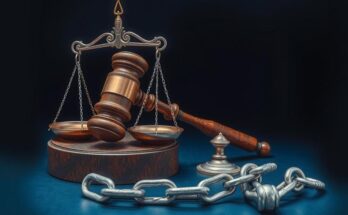A Tunisian court trial involving 40 opposition figures began amid allegations of politically motivated charges of conspiracy against state security. Activists protested the trial’s legitimacy, arguing human rights violations occurred during pre-trial detention. Critics claim President Kais Saied’s actions suppress dissent, while his supporters view them as necessary for stability amidst economic issues.
A high-profile trial commenced in Tunisia on March 4, 2025, involving 40 opposition figures charged with conspiring against state security. Activists protested outside the courthouse, denouncing the case as politically motivated and unfounded. Nine defendants were absent from the trial due to being considered a security risk by the court, prompting their lawyers to demand their right to appear before the judge. The accused include prominent politicians, former diplomats, business leaders, journalists, lawyers, and human rights advocates, with several having faced more than two years in pre-trial detention.
Some defendants could face capital punishment if convicted, as the charges range from plotting against state security to links with terrorist organizations. Allegations also include having unlawful connections with foreign entities. Critics of President Kais Saied claim the charges are fabricated, asserting that the trial represents a politically motivated crackdown on dissent following Saied’s controversial authority expansion in 2021.
Supporters of President Saied contend that these actions are essential for stabilizing a nation grappling with inflation, unemployment, and corruption, blaming political elites for economic mismanagement. International rights organizations have condemned the treatment of the defendants, highlighting systematic violations of their rights during the pre-trial process.
The International Commission of Jurists (ICJ) emphasized that documented rights violations fundamentally undermine the legitimacy and impartiality of the prosecution. Tunisia, historically the birthplace of the Arab Spring, is experiencing a notable reduction of freedoms under President Saied, which concerns both domestic critics and international organizations.
The trial of 40 opposition figures in Tunisia reflects increasing tensions between the government and dissenters. Accusations of conspiracies against state security are viewed by many as a politically motivated effort to suppress opposition. Human rights organizations have raised significant concerns regarding the legitimacy of the proceedings, while the political landscape remains fraught with instability amidst economic challenges.
Original Source: apnews.com




